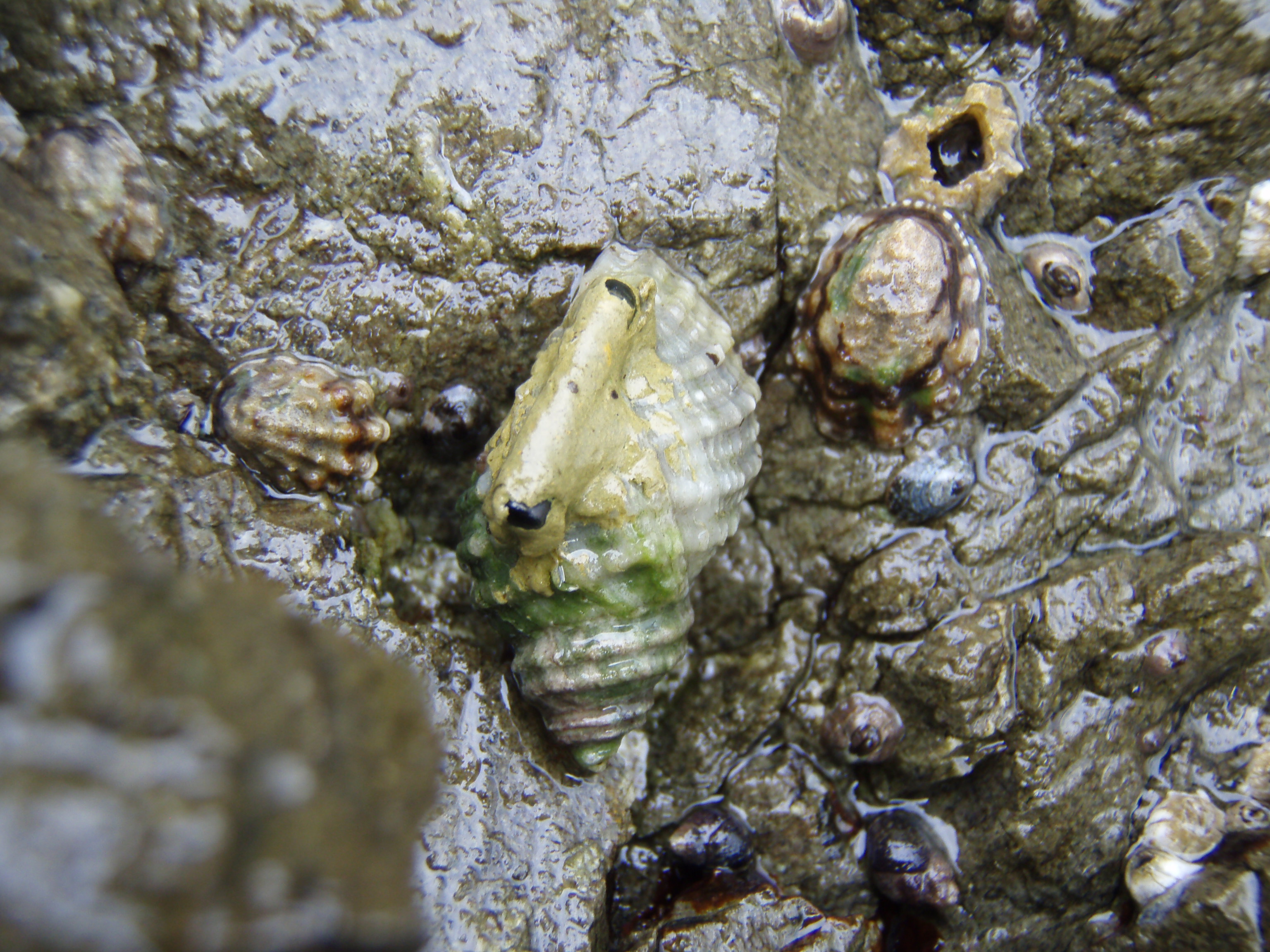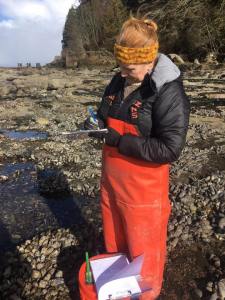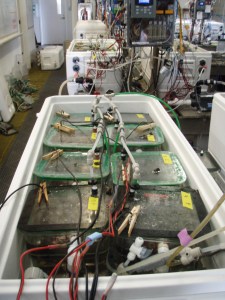Behavioral thermoregulation in a slow marine invertebrate
The intertidal whelk snail, Nucella ostrina, moderates its exposure to high temperatures (thermoregulates) by feeding on reliably cool days of the two-week tidal cycle. I tested the effect of temperature on feeding preference behavior in experimentally created habitats in the field, used radio frequency identification (RFID) tags to track snail movements in their natural habitat, estimated snail body temperatures in microhabitats using physical thermal models, and assessed thermal performance as recovery time after stress. Putting these pieces together, we anticipate that the thermoregulatory behavior in Nucella will buffer negative impacts of climate change.
Key collaborators: Emily Carrington (UW), Sarah Gilman (Claremont Colleges), Michael “Moose” O’Donnell (UC Berkeley)

Heat wave impacts on shellfish

The heat wave that struck the Pacific Northwest in June 2021 occurred during a week when the extreme low tides occurred near midday, leaving intertidal species exposed to temperatures far outside those normally experienced. Widespread negative impacts were observed on some shellfish species throughout the Salish Sea, however, other species, populations, and sites were not negatively affected. A large collaboration of researchers and resource managers described the qualitative trends of heat wave impacts.
Key collaborators: Wendel Raymond (UW), Jamestown S’Klallam Tribe, Skokomish Tribe, Swinomish Tribe, University of British Columbia, University of Washington, Washington Sea Grant, Washington Department of Fish and Wildlife
Mussel fall-off in a changing ocean climate

Marine mussels are important habitat-forming foundation species on rocky shores and important source of food and revenue for the people of Washington state. Increased temperatures and decreased pH associated with climate change have been found to decrease the strength of mussel attachment (Laura Newcomb dissertation 2015), which could lead to high levels of fall-off on shorelines and at mussel farms. (Sci comm video of our work by Abby Lunstrum.) Our team tracked mussel attachment strength and health/condition as well as physical and chemical water properties for 3 years at two WA shellfish farms. We are working to correlate environmental variables to seasonal and sudden fall-off events.
Key collaborators: Emily Carrington (UW), Molly Roberts (UW), Laura Newcomb (NOAA), Ian Jefferds (Penn Cove Shellfish), WA Sea Grant
Ocean acidification disrupts snail growth

We predicted that decreased seawater pH due to ocean acidification would reduce feeding and growth of the predatory whelk Nucella ostrina. We experimentally controlled seawater pH by altering carbonate chemistry (adding CO2) for a range of treatments from pH 7.0 to 8.0. Snails in lower pH treatments consumed slightly more barnacles than snails in higher pH treatments, however, growth of tissue and shell in low pH treatments was the same or lower than growth in higher pH treatments. We presented these findings at the 2018 SICB meeting.
Key collaborators: Matt George (UW/NOAA), Emily Carrington (UW)
Shell size and temperature change: using historical ecology to test climate change hypotheses
Hilary and Robin taught a research apprenticeship on this topic at Friday Harbor Labs in spring 2018 with open access to all course materials, including student results. Students C. May, C. Toler-Scott, & J.A. Fields presented their work at the Western Society of Naturalists Annual Meeting 2018 & the Mary Gates Undergraduate Research Symposium 2019.
Key collaborators: Robin Elahi (Stanford), Aaron Galloway (University of Oregon), Will King (UW, King County), Chloe May, Cormac Toler-Scott, Jamie Andersen Fields
Seasonal thermal tolerance
Seasonal changes in thermal tolerances in the intertidal snails Littorina spp. and Nucella spp. on San Juan Island, WA.
Key collaborators: William Stickle (Louisiana State University), Emily Carrington (UW)